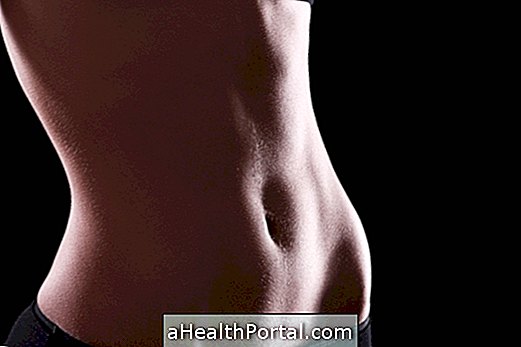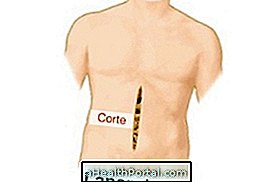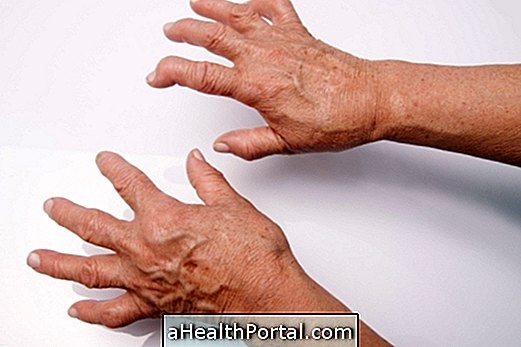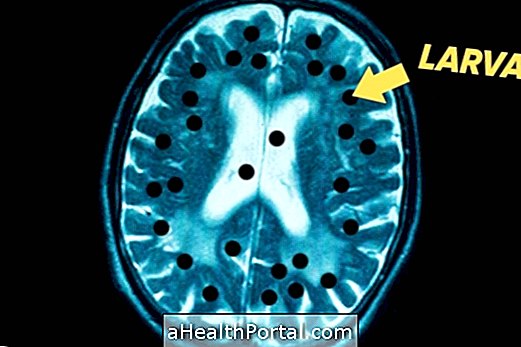Recovery from bariatric surgery may take between 6 months to 1 year and the patient may lose between 10% and 40% of the initial weight during this period, being faster in the first months of recovery.
During the first month after bariatric surgery, it is normal for the patient to have pain in the abdomen, nausea, vomiting and diarrhea frequently, especially after meals, and to avoid these symptoms some care with feeding and return to daily life and physical exercise.
Respiratory exercises are indicated to be performed in the first days of the postoperative period to prevent respiratory complications. See examples in: 5 exercises to breathe better after surgery.
Diet After Bariatric Surgery
After surgery to lose weight, the patient will be fed by serum through the vein and only two days later can drink water and teas, which should be ingested every 20 minutes in small quantities, at most one cup of coffee at a time, as the stomach is very sensitive.
Usually 5 days after bariatric surgery, which is when the person tolerates liquids well, the patient can eat pasty foods such as pudding or cream, for example, and only 1 month after surgery can start the intake of solid foods, by indication of the doctor or nutritionist. Learn more about diet in: Food After Bariatric Surgery.
In addition to these tips, your doctor may indicate the use of a multivitamin such as Centrum because surgery to lose weight can lead to loss of vitamins such as folic acid and B-complex vitamins.
Bariatric Surgery Dressing
After bariatric surgery, such as gastric band or bypass placement, the patient will have dressings on the abdomen that protect the scars and which should be evaluated by a nurse and changed at the health post one week after surgery. During this week the patient should not wet the dressing to prevent the scar from becoming infected.
In addition, 15 days after surgery the individual will have to return to the health clinic to remove the staples or stitches and after removing them should apply moisturizing cream daily on the scar to moisturize it.
Physical activity after bariatric surgery
Exercise should be started one week after surgery and in a slow and non-stressful way, as it helps you to lose weight even faster.
The patient can start by walking or climbing stairs, as well as helping to lose weight, helps decrease the risk of developing thrombosis and helps the bowel to function properly. However, the patient should avoid picking up on weights and doing sit-ups in the first month after surgery.
In addition, two weeks after the surgery to lose weight, the patient can go back to work and do the day-to-day activities, such as cooking, walking or driving, for example.
How to relieve pain after bariatric surgery
Having pain after surgery to lose weight is normal for the first month and the pain goes down over time. In this case, the doctor may indicate the use of analgesics, such as Paracetamol or Tramadol to alleviate it and have greater well-being.
In the case of laparotomy surgeries, where the abdomen is opened, the doctor may also recommend the use of an abdominal band to support the belly and decrease the discomfort.
When to go to the doctor
The patient should consult the surgeon or go to the emergency room when:
- Vomiting at all meal times, even if you eat and drink the foods indicated by the nutritionist;
- Have diarrhea or the bowel not working after 2 weeks of surgery;
- Not being able to eat any type of food due to very strong nausea;
- Feel pain in the abdomen very strong and that does not pass with the analgesics;
- Have fever higher than 38 ° C;
-
The dressing is dirty with yellow liquid and smells unpleasant.
In these cases, the doctor evaluates the symptoms and directs the treatment if necessary.























